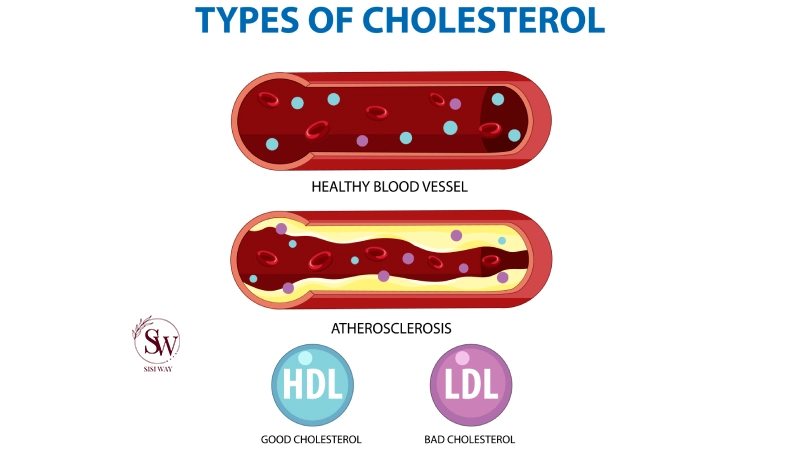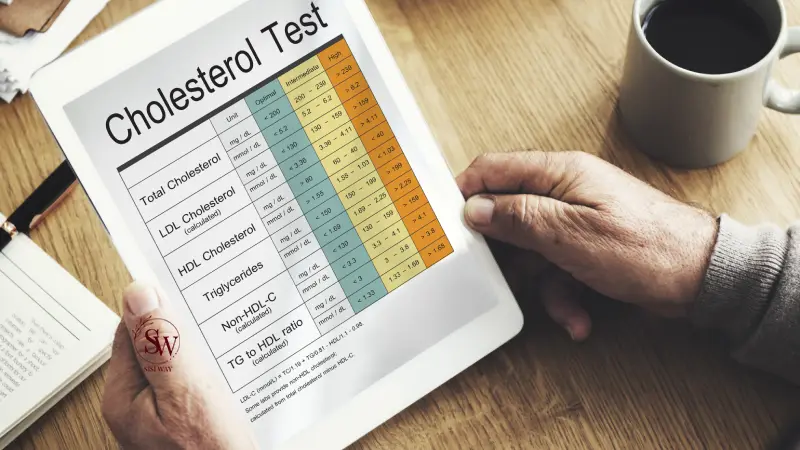What Cholesterol Level Is Dangerous?

High cholesterol levels are a significant health concern affecting millions of people worldwide. While cholesterol is essential for the body’s normal functioning, elevated levels can lead to various health problems, including heart disease and stroke. Understanding what cholesterol levels are considered dangerous is crucial for maintaining good health.
What is Cholesterol?
Cholesterol is a waxy, fat-like substance found in the cells of the body. It is essential for building cell membranes, producing hormones, and aiding in digestion. Cholesterol is produced by the liver but can also be obtained from certain foods, such as meat, dairy products, and eggs.
Types of Cholesterol

Cholesterol is transported in the blood by lipoproteins, which are classified into two main types: low-density lipoprotein (LDL) and high-density lipoprotein (HDL).
- LDL cholesterol: Often referred to as “bad” cholesterol, LDL cholesterol can build up in the walls of the arteries, leading to atherosclerosis, or hardening of the arteries.
- HDL cholesterol: Known as “good” cholesterol, HDL cholesterol helps remove LDL cholesterol from the bloodstream, reducing the risk of heart disease.
What Cholesterol Level is Considered Dangerous?

The American Heart Association (AHA) provides guidelines for cholesterol levels:
- Total cholesterol: Less than 200 milligrams per deciliter (mg/dL) is considered desirable.
- LDL cholesterol: Less than 100 mg/dL is optimal, 100-129 mg/dL is near optimal/above optimal, 130-159 mg/dL is borderline high, 160-189 mg/dL is high, and 190 mg/dL and above is considered very high.
- HDL cholesterol: Less than 40 mg/dL for men and less than 50 mg/dL for women is considered low and increases the risk of heart disease.
- Triglycerides: Less than 150 mg/dL is considered normal, 150-199 mg/dL is borderline high, 200-499 mg/dL is high, and 500 mg/dL and above is very high.
Dangers of High Cholesterol Levels
High cholesterol levels can lead to the development of atherosclerosis, which narrows and hardens the arteries, restricting blood flow. This increases the risk of heart disease, heart attack, and stroke. High cholesterol levels can also lead to the formation of blood clots, which can block blood flow to the heart or brain, causing a heart attack or stroke.
Managing Cholesterol Levels
Maintaining a healthy lifestyle can help manage cholesterol levels and reduce the risk of heart disease. This includes:
- Eating a healthy diet rich in fruits, vegetables, whole grains, and lean proteins.
- Limiting saturated fats, trans fats, and cholesterol in your diet.
- Exercising regularly.
- Maintaining a healthy weight.
- Not smoking.
What Foods Have Cholesterol
Cholesterol is found in animal-based foods, such as:
- Meat: Particularly organ meats like liver, as well as red meat like beef, pork, and lamb.
- Poultry: Such as chicken and turkey.
- Dairy Products: Including milk, cheese, and butter.
- Eggs: Specifically, the yolk contains cholesterol.
- Seafood: Shellfish like shrimp, crab, and lobster can be high in cholesterol.
It’s important to note that while these foods contain cholesterol, they can still be part of a healthy diet when consumed in moderation. It’s also crucial to pay attention to the saturated and trans fats content in these foods, as they can raise LDL cholesterol levels.
Worst Foods for Autoimmune Disease
Frequently Asked Questions (FAQs)
1. Can high cholesterol levels be genetic?
Yes, high cholesterol levels can be inherited from family members. This condition, known as familial hypercholesterolemia, can lead to dangerously high cholesterol levels and an increased risk of heart disease.
2. Are there any symptoms of high cholesterol?
High cholesterol itself does not usually cause any symptoms. It is often referred to as a “silent” condition because many people are unaware that they have high cholesterol until it causes health problems such as heart disease or stroke.
3. Can high cholesterol levels be lowered without medication?
Yes, high cholesterol levels can often be lowered through lifestyle changes, such as adopting a healthy diet and exercising regularly. In some cases, medication may be necessary to lower cholesterol levels






